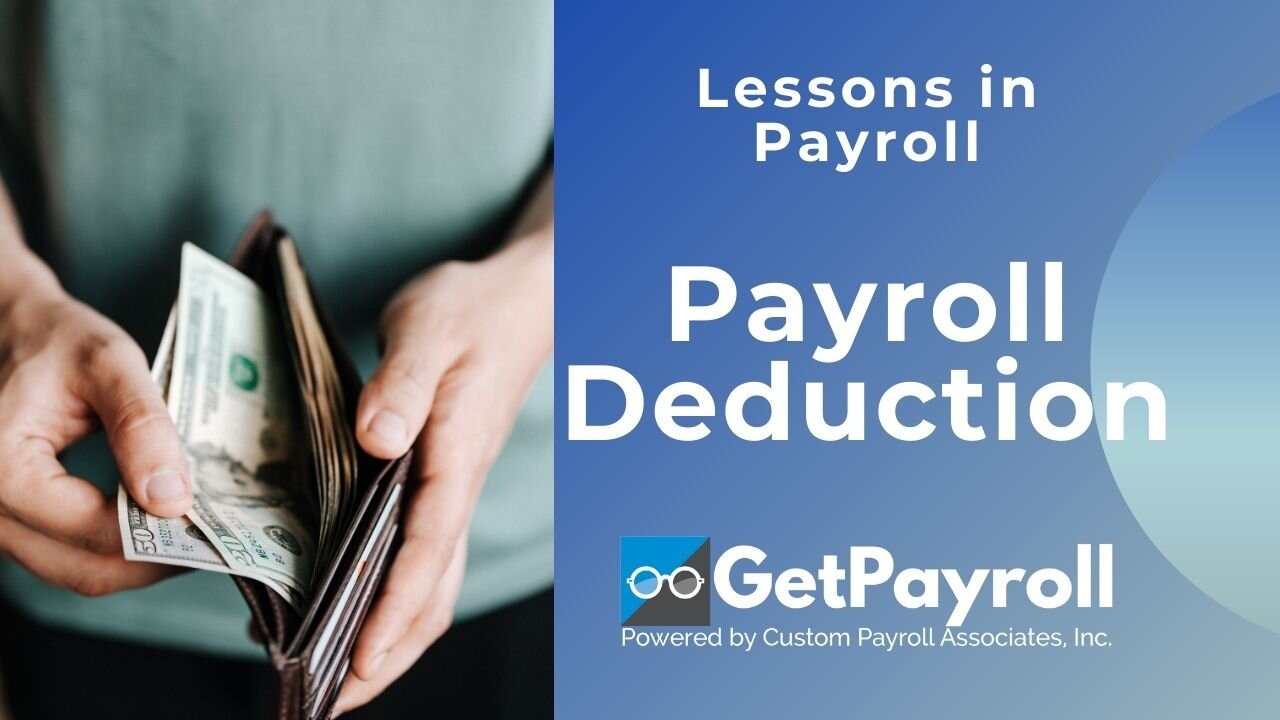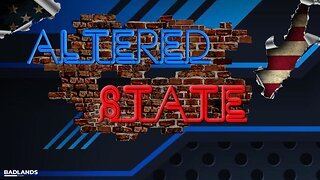Premium Only Content

PAYROLL DEDUCTIONS: Lessons in Payroll with Charles Read
GetPayroll President Charles Read shares his years of knowledge of the payroll landscape to the masses. today's lesson: Deductions.
www.getpayroll.com
www.thepayrollbook.com
TRANSCRIPT:
When it comes to payroll there is one word that no one likes seeing on their paystub: DEDUCTIONS. However, it is important to know what these deductions are to understand where the money is going. Although, it’s very likely your employees still won’t be happy.
There are two types of deductions: The first is Voluntary Deductions:
An employee can voluntarily agree to wage deductions that must be implemented by the payroll department. These deductions may include voluntary wage assignments to repay a debt, charitable deductions, wages withheld to purchase U.S. savings bonds, and credit union loan repayments, to name a few.
calculating taxes. These are called Pre-Tax deductions.
Since they reduce the employee’s taxable income, they reduce the required contributions that the employee and employer must make for Social Security and Medicare taxes. They also reduce the employee’s federal income tax withholding because less TAXABLE income means less income tax.
The other type of deductions are Involuntary Deductions:
Involuntary Payroll Deductions are those over which an employer or employee has little or no control. The employer is required by law to deduct a specific dollar amount of the employee's pay and remit it to a person or agency to satisfy the law. If the employer fails to deduct and remit that amount, the employer will generally be subject to a penalty equal to the amount that was required to be deducted plus possible fines and interest.
These involuntary deductions may include federal taxes, state taxes, local taxes, child support, tax levies, unpaid student loans, creditor garnishments, and more. A common problem for employers is determining deduction amounts when several orders for involuntary deductions are received against an employee's wages.
A certain amount of the employee’s wages is exempt from involuntary deduction orders. If there is not enough payroll available, after amounts are exempted, to pay all the orders, the employer must understand which orders to pay and how much to pay on each order. There are methods to prioritize all of the various types of orders received by the employer.
If you would like to learn more about payroll, check out our website at getpayroll.com or my new book:
The Payroll Book: A Guide for Small Businesses and Startups.
Available at thepayrollbook.com, Amazon, or wherever fine books are sold.
Thanks for listening.
-
 2:32:23
2:32:23
The Quartering
3 hours agoOn To The Big Bosses! Act 2 Of Expedition 33
25.4K3 -
 LIVE
LIVE
SpartakusLIVE
5 hours agoTiger Blood RESTOCKED and 30% off w/ code SPARTAKUS30
527 watching -
 24:58
24:58
Law&Crime
5 hours ago $0.49 earnedSecond Note Leaves Disturbing Clues in New York City Killings
7.46K4 -
 1:36:57
1:36:57
Badlands Media
21 hours agoAltered State S3 Ep. 39
31.3K7 -
 2:04:07
2:04:07
Due Dissidence
10 hours agoCharlie Kirk's GAZA LIES, Caitlin Clark Stalker, Palantir Goes Hollywood - w/ Kyle Matovcik | TMWS
9.52K4 -
 LIVE
LIVE
I_Came_With_Fire_Podcast
12 hours agoAmerica First, Trump Threatens China, Your Friendly Neighborhood Illegal, EPA Gets a "W"
297 watching -
 LIVE
LIVE
Geeks + Gamers
2 hours agoGeeks+Gamers Play- MARIO KART WORLD
124 watching -
 8:28:19
8:28:19
Dr Disrespect
11 hours ago🔴LIVE - DR DISRESPECT - BATTLEFIELD 1 - FULL GAME
153K7 -
 1:39:26
1:39:26
Glenn Greenwald
7 hours agoStephen Miller's False Denials About Trump's Campus "Hate Speech" Codes; Sohrab Ahmari on the MAGA Splits Over Antitrust, Foreign Wars, and More | SYSTEM UPDATE #495
98.3K42 -
 1:57:28
1:57:28
Omar Elattar
7 hours agoThe $300M CEO: "The One Skill That Made Me Rich In 15 Different Countries!"
12.9K